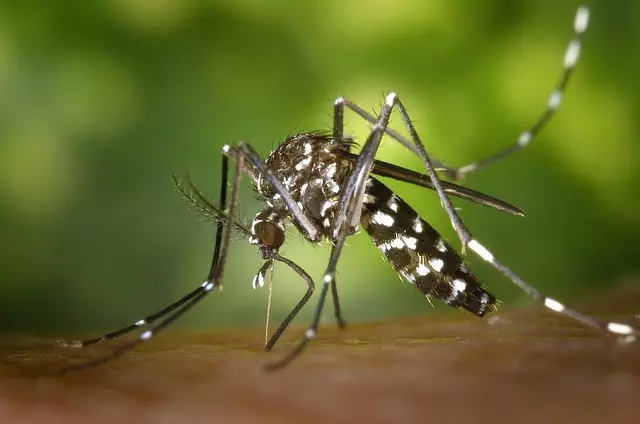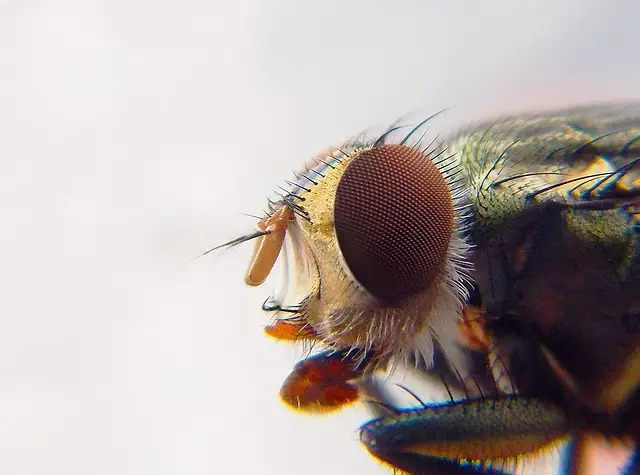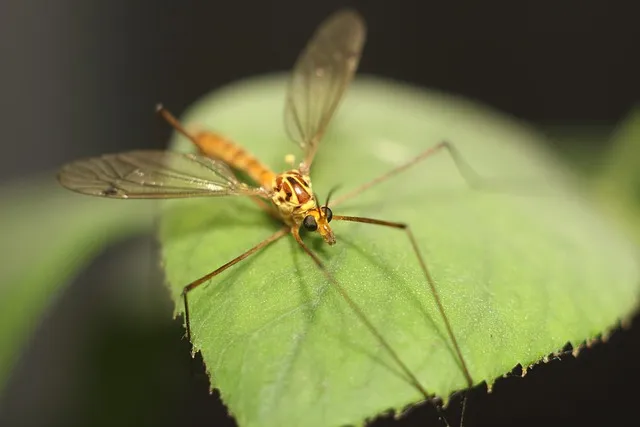Mosquito Control services are vital for mitigating health risks posed by mosquito-borne diseases like Zika, West Nile, and dengue fever, especially in tropical and subtropical regions. They employ integrated strategies including larvicide treatments, adulticide sprays, and breeding site elimination to target both immature and adult mosquitoes, reducing disease transmission rates. These measures enhance public health and well-being, with professionals utilizing chemical insecticides, biological controls, and innovative techniques like ultrasonics and light traps. Choosing a service requires understanding local ecosystems and considering methodology for safety and sustainability. Environmentally conscious practices, such as habitat manipulation and targeted applications, minimize ecological harm while preserving biodiversity. Advanced technologies and community collaboration drive effective mosquito control in urban and rural settings, with GPS-enabled devices, drones, smart sensors, and genetic engineering revolutionizing the industry. Future efforts will focus on community-driven solutions, empowering residents through education and integrated pest management to achieve sustainable results.
Mosquitoes are more than a mere nuisance; they carry diseases that can pose significant health risks. Understanding mosquito-borne illnesses and their impact is crucial in implementing effective prevention strategies. Local mosquito control services play a vital role in safeguarding communities by employing specialized methods to combat these vectors of disease. This article explores various aspects of mosquito management, from common control techniques to the latest innovations, emphasizing the advantages of professional intervention for safer, healthier environments.
Understanding Mosquito-Borne Diseases and Their Impact

Mosquitoes are not just a nuisance; they can be vectors for various diseases, including Zika, West Nile, and dengue fever. These diseases pose significant health risks, especially in tropical and subtropical regions where mosquitoes thrive. Understanding the impact of mosquito-borne illnesses is crucial when considering mosquito control measures. Many of these diseases have global reach, with severe economic and social implications.
Local mosquito control services play a vital role in mitigating these risks by employing various strategies such as larvicide treatments, adulticide sprays, and strategic breeding site elimination. By targeting both the immature and adult stages of the mosquito lifecycle, these methods help reduce disease transmission rates, ensuring safer communities and promoting outdoor activities without concern.
The Role of Local Mosquito Control Services in Disease Prevention

Local Mosquito Control Services play a pivotal role in disease prevention, particularly in areas where mosquito-borne illnesses are prevalent. By implementing targeted and strategic control measures, these services help reduce the risk and impact of diseases such as malaria, dengue fever, and Zika virus. Trained professionals employ various techniques, including larvicide applications, adulticide sprays, and biological controls, to manage and minimize mosquito populations.
Through regular surveillance and monitoring, they identify high-risk zones and hot spots, ensuring a proactive approach to disease prevention. By educating communities about the importance of mosquito control and promoting good environmental practices, these services foster a collective effort to create a healthier living environment. This multifaceted approach not only protects public health but also contributes to the overall well-being of local communities.
Common Methods Used by Mosquito Control Services

Mosquito control services employ a variety of methods to combat these pesky insects and ensure a more comfortable living environment for residents. One common approach is the use of insecticides, which can be applied in the form of sprays or larvicides to target adult mosquitoes and their breeding grounds. These chemicals are carefully selected and applied following strict regulations to minimize environmental impact and ensure safety.
Another widely used method involves biological control, where natural predators like fish and bacteria are introduced to water bodies to feed on mosquito larvae. This eco-friendly approach not only reduces the mosquito population but also promotes a balanced ecosystem. Additionally, some services utilize ultrasonics and light traps, which emit specific sounds or attract mosquitoes with bright lights, luring them away from residential areas. These innovative techniques showcase the industry’s ongoing commitment to effective and sustainable mosquito control.
Advantages of Professional Mosquito Management for Communities

Implementing professional mosquito management in communities offers significant advantages that extend far beyond mere comfort. By enlisting expert services, local governments and residents can mitigate health risks associated with mosquito-borne diseases such as Zika, West Nile, and dengue fever. Professional teams employ advanced techniques like targeted spraying, larval source reduction, and trap deployment to create a comprehensive mosquito control strategy.
Beyond public health benefits, professional management contributes to improved quality of life for community members. Reduced mosquito populations alleviate discomfort from bites, minimizing sleep disturbances and skin irritations. Moreover, these strategies help preserve local ecosystems by targeting specific species without damaging beneficial insects or wildlife, fostering a more balanced environmental equilibrium.
How to Choose the Right Mosquito Control Service for Your Area

When choosing a mosquito control service, understanding your local ecosystem is key. Different areas have varying mosquito species and breeding grounds, so a service that excels in urban settings might not be equipped to handle rural challenges. Research companies that specialize in your region’s unique needs; they’ll employ targeted strategies like larvicide treatments for standing water or adulticide sprays, ensuring effectiveness.
Additionally, consider the methods they use. Some services offer organic, eco-friendly options while others lean on chemical solutions. Select a company committed to safety and sustainability, especially if you have pets or children. Reading reviews from local residents can also provide insights into their track record and customer satisfaction, helping you make an informed decision for optimal mosquito control.
Environmental Considerations in Local Mosquito Control Practices

In the realm of mosquito control, environmental considerations play a crucial role in ensuring effective and sustainable practices. Local authorities and pest management services must adopt holistic approaches that minimize ecological impact while targeting mosquito populations. This involves understanding the intricate relationship between mosquitoes, their habitats, and the surrounding ecosystem. For instance, implementing eco-friendly methods like habitat manipulation, biological controls, and targeted applications of insecticides can significantly reduce negative effects on non-target species and water bodies.
By integrating environmental stewardship into mosquito control programs, communities can foster a harmonious balance between public health protection and ecological preservation. This strategic approach not only safeguards local biodiversity but also promotes long-term sustainability in managing mosquito-borne diseases. In today’s digital era, advanced technologies enable precise monitoring and targeting of mosquito breeding grounds, enhancing the efficiency of these environmentally conscious practices.
Case Studies: Successful Mosquito Control Programs in Urban and Rural Settings

Successful mosquito control programs offer valuable insights into managing these pesky insects effectively, and case studies from both urban and rural settings demonstrate diverse strategies for achieving this goal. In densely populated urban areas, integrated pest management (IPM) approaches have proven successful. These involve a combination of methods such as source reduction (eliminating standing water), biological control (introducing natural predators like bats or fish), and targeted applications of insecticides or repellents. For instance, New York City’s comprehensive mosquito management program has utilized these tactics to significantly reduce mosquito populations in urban parks and public spaces.
In contrast, rural settings present unique challenges due to larger land areas and varied habitats. Here, community-based initiatives and adaptive management strategies have shown promise. Local farmers and residents in some rural communities have organized traps and barrier treatments around homes and agricultural areas. Additionally, monitoring programs that track mosquito populations and disease transmission have enabled proactive responses. A notable example is a collaborative effort between local authorities and residents in a farming community, where the implementation of these combined strategies led to a substantial decrease in mosquito-borne diseases.
New Technologies and Innovations in Mosquito Management

The world of mosquito control has seen a significant evolution with the integration of new technologies and innovations. These advancements offer more precise, effective, and environmentally friendly methods for managing mosquito populations. For instance, GPS-enabled tools and drones are being utilized to survey and target mosquito breeding grounds, ensuring efficient use of resources. Smart sensors equipped with artificial intelligence can detect even the slightest water collections, allowing for immediate action to eliminate breeding sites.
Additionally, genetic engineering has led to the development of genetically modified mosquitoes that hinder the reproduction of their species, providing a sustainable solution to local mosquito control. The introduction of these technologies not only enhances the effectiveness of mosquito management but also reduces the environmental impact commonly associated with traditional pest control methods.
The Future of Local Mosquito Control: Community Engagement and Collaboration

In the future, local mosquito control services will increasingly rely on community engagement and collaboration to achieve sustainable results in mosquito control. This shift is driven by the recognition that professional services alone cannot effectively combat mosquito-borne diseases. By involving residents, local governments can empower communities to take ownership of their environmental health. Educational initiatives aimed at promoting proper waste management, water storage practices, and plant choices can significantly reduce breeding grounds for mosquitoes.
Collaboration between local authorities, residents, and community organizations enables the implementation of integrated pest management strategies. This holistic approach leverages social engagement, biological controls, and targeted applications of mosquito control products to create a more robust and environmentally friendly solution. By fostering a sense of collective responsibility, communities can better protect public health and enhance the overall quality of life in their areas, making mosquito control efforts both effective and efficient.
